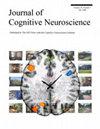推断系统发育遥远的生物的意识
IF 3.1
3区 医学
Q2 NEUROSCIENCES
引用次数: 0
摘要
本文概述了从生物学角度解释意识的主观性神经动力学方法,并将其应用于推断与人类系统发育相距甚远的动物的意识问题。主观性神经动力学方法认为,意识或感觉经验是神经系统的特征,而神经系统是通过网络互动和大规模动态模式的结合来实现主观性的。脊椎动物大脑结构的特征在其他意识生物学论述中被认为是不重要的。在复杂行为、认知和感知进化之前,动物界就已经出现了深层次的系统发育分支。这些能力是在节肢动物、脊椎动物和头足类动物之间差异巨大的大脑结构中独立产生的,但却保留了与人类感觉经验明显相关的大规模动态模式。进化论的观点也促使人们对意识持一种强烈的渐进主义观点;意识动物与无意识动物之间的简单区分很可能会被一种观点所取代,这种观点承认程度上的差异,也许是多方面的差异。本文章由计算机程序翻译,如有差异,请以英文原文为准。
Inferring Consciousness in Phylogenetically Distant Organisms
The neural dynamics of subjectivity (NDS) approach to the biological explanation of consciousness is outlined and applied to the problem of inferring consciousness in animals phylogenetically distant from ourselves. The NDS approach holds that consciousness or felt experience is characteristic of systems whose nervous systems have been shaped to realize subjectivity through a combination of network interactions and large-scale dynamic patterns. Features of the vertebrate brain architecture that figure in other accounts of the biology of consciousness are viewed as inessential. Deep phylogenetic branchings in the animal kingdom occurred before the evolution of complex behavior, cognition, and sensing. These capacities arose independently in brain architectures that differ widely across arthropods, vertebrates, and cephalopods, but with conservation of large-scale dynamic patterns of a kind that have an apparent link to felt experience in humans. An evolutionary perspective also motivates a strongly gradualist view of consciousness; a simple distinction between conscious and nonconscious animals will probably be replaced with a view that admits differences of degree, perhaps on many dimensions.
求助全文
通过发布文献求助,成功后即可免费获取论文全文。
去求助
来源期刊
CiteScore
5.30
自引率
3.10%
发文量
151
审稿时长
3-8 weeks
期刊介绍:
Journal of Cognitive Neuroscience investigates brain–behavior interaction and promotes lively interchange among the mind sciences.

 求助内容:
求助内容: 应助结果提醒方式:
应助结果提醒方式:


